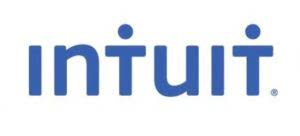
You’ll need some experience and knowledge in accounting before you can succeed in this role. Several organizations offer accreditation for bookkeepers, so be sure to do your research and find one that’s right for you. While a full charge bookkeeper and an accountant work closely with financial data, they serve divergent roles in an organization. These distinctions become apparent when we delve into their responsibilities, education, and contribution to strategic decision-making.

Partnering with professional bookkeeping services such as Books and Balances ensures that small businesses can access complete charge bookkeeping expertise. Their team of professionals handles all aspects of bookkeeping, allowing business owners to save time, reduce stress, and have peace of mind knowing their finances are in good hands. These full service bookkeeping duties could include data entry of accounts payable invoices and preparing bank deposits. As mentioned earlier, the primary difference between a full charge and a regular bookkeeper is the fact that full charge bookkeepers manage all the accounting needs of the business.
Previous PostWhat Are CFO Services And How CFOs Steer Businesses
In the intricate landscape of financial management, the roles of full-charge bookkeepers and accountants stand as distinct pillars, each contributing uniquely to an organization’s fiscal prowess. Distinguishing between these roles is pivotal for enterprises aiming to fine-tune their financial operations. To ensure success as a full charge bookkeeper, you should have advanced knowledge of bookkeeping and accounting systems, excellent project management skills, and a good eye for detail.
- You must handle day-to-day bookkeeping tasks along with full-cycle accounting duties.
- Because of this, employers often prefer candidates who have attained a higher degree in a relevant or related field.
- They must also be familiar with accounting software and how to prepare and present financial statements and tax returns.
- By taking over the complicated and time-consuming tasks of bookkeeping, a full charge bookkeeper allows the business owner to focus on core areas of their business.
- In conclusion, the trends of automation and technology, outsourcing bookkeeping services, and the increasing demand in small businesses are shaping the industry of full charge bookkeeping.
A full charge bookkeeper has a broader range of responsibilities and enjoys more independence in decision-making. Their expertise and comprehensive understanding of financial management principles make them crucial assets to a business, which is reflected in their higher compensation. On the other hand, a regular bookkeeper focuses on specific areas of financial management and follows established procedures. While both roles are important, the full charge bookkeeper plays a more strategic and comprehensive role in managing a company’s financial records. Full-charge bookkeeping is an all-encompassing financial management approach that involves meticulously recording, organizing, and reporting an organization’s financial transactions. Unlike regular bookkeeping, which may focus on specific tasks like data entry or maintaining ledgers, full-charge bookkeeping entails a broader set of responsibilities.
Bookkeeping Done Right
They may also supervise small accounting or financial teams that can include clerks responsible for accounts payable or receivable, or payroll. They may supervise a clerk in preparing bank deposits, or in paying monthly bills. The demand for full charge bookkeepers has been steadily increasing, particularly among small businesses. As these businesses grow and expand, the need for professional bookkeeping services becomes more evident. Outsourcing bookkeeping services has become a popular option for businesses of all sizes. Many companies, especially small and medium-sized enterprises (SMEs), are recognizing the benefits of delegating their bookkeeping tasks to external professionals.

A full-charge bookkeeper is responsible for all aspects of the company’s finances. The bottom line is that if you want to become a successful full charge bookkeeper, you need to be willing to put in the time. Time and effort applied to any skillset will begin to flourish into a self-sustainable ability. This will show potential employers that you’re serious about your career and have the skills they’re looking for.
Required Bookkeeping Education and Experience
A full charge bookkeeper and a regular bookkeeper may seem similar at first glance, but they have distinct differences in terms of their scope of work. A full charge bookkeeper is responsible for managing all aspects of a company’s financial records, from recording transactions to generating financial statements. They handle everything from accounts payable and accounts receivable to payroll and tax preparation. In contrast, a regular bookkeeper typically focuses on specific areas of financial management and may not have the same level of responsibility or authority. As a full charge bookkeeper, you will have a range of responsibilities that are essential to the financial management of a business. These duties include managing accounts receivable, handling accounts payable, reconciling bank statements, and generating financial statements.
- Certified Public Accountants (CPAs) also have additional training and have passed a licensing exam.
- So if you’re looking to work at one of these types of places, a degree will be necessary.
- But the profession will always have a place in the offices of small and medium businesses.
- Christensen studied communications and accounting at the University of Washington, and history at Armstrong State University.
If you’re looking for a complete charge bookkeeping job, there are a few things you can do to increase your chances of success. This is a great way to meet potential employers and learn more about the job market. Finally, keep in mind that the job market for full charge bookkeepers is competitive. This means that you’ll need to have solid skills and stand out from the crowd if you want to succeed. The full charge bookkeeper will supervise these employees, helping to organize work flow and verifying accuracy of work.


